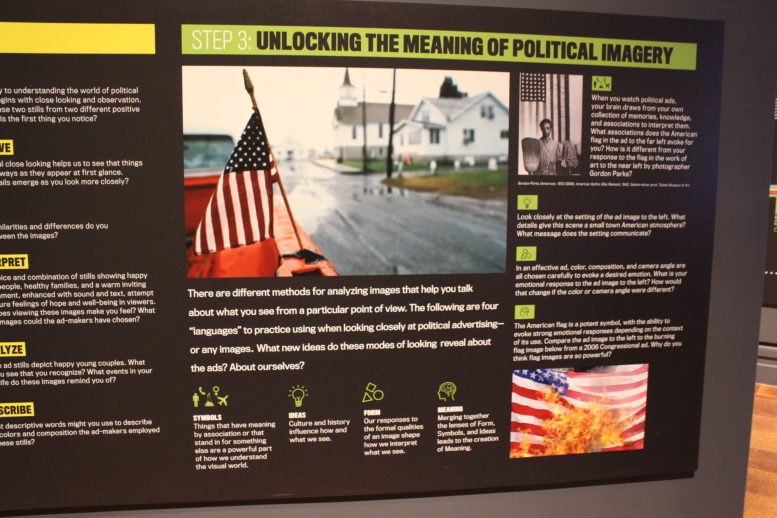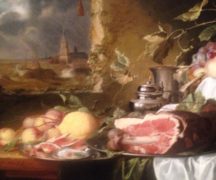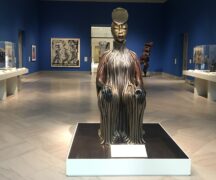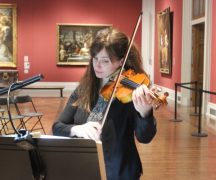From TOLEDO MUSEUM OF ART
Kyle Kondik, author of the new book “The Bellwether: Why Ohio Picks the President,” will appear on Sept. 22 at the Toledo Museum of Art Peristyle.
Just days ahead of the first presidential candidate debate, Kondik will shed light on the Buckeye State’s remarkable record as a predictor of presidential election winners.
The free event at 7 p.m. is being presented jointly by the Museum and the Toledo Lucas County Public Library.
Kondik is managing editor for the nonpartisan political forecasting newsletter Sabato’s Crystal Ball, published by the University of Virginia Center for Politics. Using historical documentation and research, he will explain Ohio’s remarkable record for predicting presidential election results and why the state is essential to the 2016 election. A book signing and reception in Libbey Court will follow the presentation.
Kondik is the first of five speakers making appearances in Toledo this fall in conjunction with the Museum’s nonpartisan exhibition I Approve This Message: Decoding Political Ads. Others include University of Michigan political scientist Ted Brader; American Press Institute senior manager Jane Elizabeth; University of Michigan musicologist Mark Clague; and media, entertainment and technology executive/advisor Don Levy.
(See BG Independent News story on the exhibit at: http://bgindependentmedia.org/toledo-museum-exhibit-dissects-the-emotional-manipulation-of-political-ads/)
Ted Brader, author of the book “Campaigning for Hearts and Minds,” will discuss how emotional appeals in political ads work at 2 p.m. Sept. 24 in the Little Theater. Brader is a professor of political science at the University of Michigan and at the Center for Political Studies in the Institute for Social Research. He is a principal investigator of the American National Election Studies and has received multiple grants from the National Science Foundation for studies of political psychology, political communication, public opinion and voting behavior. A book signing will follow in Libbey Court.
Jane Elizabeth will give a presentation titled “Fact-Challenged: Finding Truth and Accuracy in a Fact-Resistant World,” at 2 p.m. Oct. 1 in the Little Theater. A senior manager at the American Press Institute, she will discuss the challenges journalists face in reaching voters with the facts during a fact-challenged campaign advertising season.
Music has the power to inspire devotion and mobilize individuals to action. University of Michigan musicologist Mark Clague discusses how music has been used to shape U.S. presidential contests, at 2 p.m. Oct. 8 in the Little Theater. As examples, he will offer songs ranging from 19th century parodies to today’s pop anthems.
Media, entertainment and technology executive/advisor Don Levy examines the persuasive power of visual effects, illusion and perception, at 6 p.m. Oct. 27 in a presentation titled “The Impact of the Visual.” He will show how the images we see, whether on the big screen in movies, on television, online or in print, present a distorted reality and challenge our ability to separate fact from fiction.
In addition to the speakers, the Museum also is offering an Eye on the Campaign: Celluloid Politico Film Series in conjunction with the University of Toledo Department of Theatre and Film. The free films will include “Wag the Dog” (1997) on Sept. 1; “A Face in the Crowd” (1957) on Oct. 6 and “Bulworth” (1998) on Nov. 3. All film showings are free and start at 7 p.m. in the Little Theater.
For more details about these and other programs, visit toledomuseum.org.
I Approve This Message: Decoding Political Ads is a first-of-its-kind art museum exhibition to offer an in-depth exploration of how political ads combine images, music, special effects and language to capture votes. Using videos, graphics and interactive media, the immersive exhibition shows how emotional triggers may impact rational thinking.
The Mood Room, a V-shaped theater with 9-foot-high screens awash with dramatic imagery and expressive audio, surrounds visitors and challenges them not to be influenced by what they see and hear. Other sections of the exhibition let visitors put what they’ve learned into practice by creating their own ads.
Organized by the Toledo Museum of Art and the nonprofit organization HonestAds, the nonpartisan exhibition opened July 14 and continues through Election Day on Nov. 8. TMA commissioned Thinc Design of New York City to design the exhibition.
I Approve This Message: Decoding Political Ads is presented by Taylor Cadillac with additional support from Block Communications, Inc., creative partner Madhouse and ProMedica, the 2016 Exhibition Program Sponsor. TMA exhibitions are also made possible by members of the Toledo Museum of Art and by a sustainability grant from the Ohio Arts Council.
Admission to the exhibition and the Museum is free.





